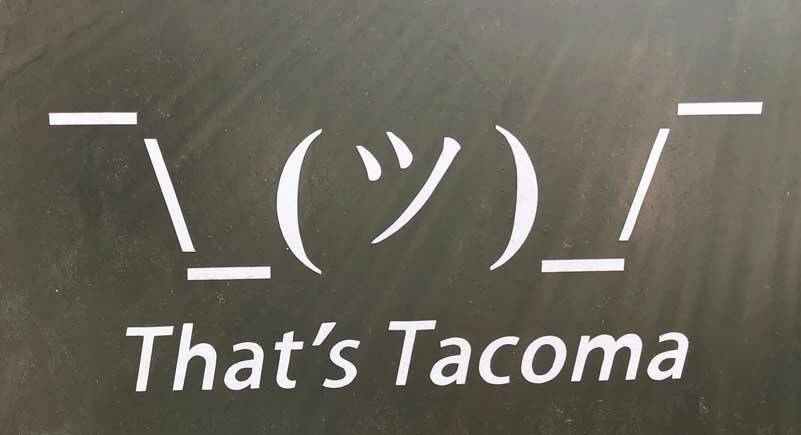By Morf Morford
Tacoma Daily Index
We are what we repeatedly do. Excellence, then, is not an act, but a habit.- Will Durant
Positive or negative, productive or unproductive, virtually everything we do, from the time we wake up in the morning, to saving money to the way we make coffee or get dressed each day to how we speak to those around us is framed, even defined by, our routines and habits.
How we treat each other, how we prepare for our futures, how we organize our days – and our careers – is an accumulation of what we have done hundreds, if not thousands of times before.
As Will Durant put it (paraphrasing Aristotle) everything we do, over time, with each movement, each (perhaps unintentional) act solidifies and literally creates the person we become.
Some habits are deliberate and intentional, others are (to some degree) forced upon us. Getting up to go to school is, for example, not entirely voluntary, and we may or may not incorporate that schedule into our adult lives, but for many of us, to some degree, that schedule is one that most of us stick to.
If you’ve ever attempted to learn a new skill, from home repair to mastering a musical instrument, you know that the first few times make or break your progress. When it comes to food (and many drinks) taste (and appreciation) is “acquired” – you have to “learn” to like some things. In other words, food tastes, work habits, and public behavior is an expression of what has come before – usually for years.
These habits of mind and body are difficult to measure, or even notice. But you can sense them if you observe closely – or if you are an outsider.
I like to walk around neighborhoods.
My own neighborhood is too familiar for me to notice anything, but when I walk the streets of other neighborhoods, implicit attitudes, usually because they are so distinct, become visible to me.
Litter is a visible indicator, even a social barometer, of the “tone” of a neighborhood. Some neighborhoods have no litter – it looks like the sidewalks and parking strips have been vacuumed every evening. Other areas have accumulated litter, and it is apparent that much of it has been present for months – if not longer. Clean streets tend to stay clean, and littered streets tend to stay littered.
The same can be said of the noise level or the amount of greenery and landscaping.
The “tone” of a school or neighborhood or even a nation are, in most cases, remarkably consistent.
If you’ve been to Europe for example, just crossing a border, in many cases, brings on a dramatically different “tone” in terms of litter, noise – and in some cases – trust.
I was in rural British Columbia, Canada, not long ago. A common site along side roads were produce stands where a booth might hold a mound of locally grown fruit or vegetables (or in a few cases, a cooler full of farm-raised eggs) and a can of some kind to hold the payment. With no person or camera anywhere in range. Trust was presumed. It was assumed that produce would be paid for and that the money would be left behind.
And, in most cases, that level of trust was respected.
If you know Tacoma at all, you know how long such a system would work here. Which is to say, not at all.
We all know, for better or worse, that the entire produce stand would be emptied, if not vandalized and destroyed within hours – if not sooner. The cash, if any had been left, would be long gone within minutes.
Habits accrete around our personal and public lives and we, as individuals and as a community, literally become the product of our habits.
We in Tacoma have had more than one murder a week so far in 2022. For better or worse, we express who, and what we are, week after week.
And, in counterpoint to Will Durant, it is rarely excellence. But it is who we are.
On a national level, we have had a mass school shooting also on a more than weekly basis.
That too, apparently, is who we are.
The response to each of these massacres is also an expression of habit. Predictable phrases and justifications emerge, almost always along well-established political lines.
Our reactions are as much a habit as our actions.
Excellence is a habit – but so is violence and evasion. And denial. And avoidance of any responsibility.
At every level, from saving money to an exercise regimen, to how we treat each other, our habits bear their inevitable and enduring fruit.
We in Tacoma have spent decades, even generations, constructing who we are. Our laws and policies – and how – or if – they are enforced – are the encoded and authorized expression of what we care about.
Do we want the homeless housed and taken care of, for example, or do we just want them out of our sight?
We can, and could, by our actions and attitudes steer our community, and even our nation, more in the direction of excellence than in the all too obvious direction we have been going.
To paraphrase Will Durant, community well-being, safety, an implied sense of trust and opportunity is never an act or a law, or even a policy, but a habit.






